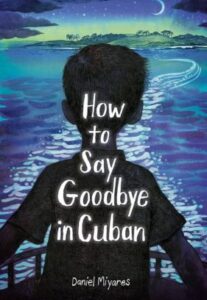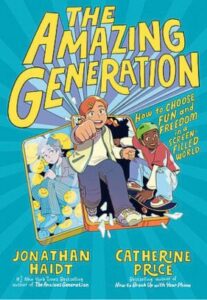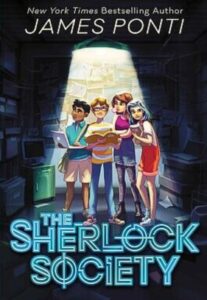After 15-year-old Nina’s parents divorce, she realizes that being biracial is affecting every area of her life.
Nina’s younger brother, Jimi, lives with their black dad while Nina lives with their white mom across town. While spending the weekend at her father’s house, she notices that her dad has started watching more TV and shares negative opinions about white people. Nina’s dad gives her the first chapter of a book he is writing based on journal entries from her great-great-grandmother Sarah. Nina enjoys the story, so her father gives her parts of the manuscript periodically. Nina escapes from her own problems by reading Sarah’s story.
Sarah is a slave in mid-1800s Virginia. She grew up going to church every Sunday with her family. After receiving her aunt’s Bible, Sarah starts sneaking out at night to read the Bible with other slaves. Sarah’s owner catches her reading, and she narrowly avoids being beaten because of it. After Sarah’s owner sells all of her family, Sarah stops believing in God. An abolitionist disguised as a bird watcher tells her how to escape.
Back at school on Monday, Nina talks with her group, which includes her best friend, Jessica, about looting in the aftermath of a recent natural disaster. When Nina’s friends start to express negative opinions about black people, Nina becomes defensive and storms off. Nina and Jessica’s relationship seems to be changing. Not knowing where she fits, Nina sees a childhood friend, Lavonn, and sits with her at the “black” lunch table. Nina feels pressure to choose between being white and black.
Nina’s mom notices that Nina is reading a story about slavery and forbids her to read more of it because of her growing attitude. Nina takes her frustrations out on her parents by talking back and yelling at them.
Nina finds out that her brother, Jimi, stole a bully’s bike after he heard their dad say that white people “owe” black people. Then Nina becomes upset when her dad’s new girlfriend, Helane, comes to her father’s house. Nina runs back to her mom’s house and remembers one of her friends, Fran, who ran away after Fran’s dad moved away. Nina decides to run away to Fran’s house, which is located across the state.
Nina steals her father’s manuscript, returns the bike her brother stole, skips school and takes the city bus to the Montgomery Station. When her bus is delayed, Nina wanders the city and visits a church where she talks and prays with a priest, Father Jorge. He directs her to the church’s meditation garden. Afterward, Nina buys food, goes to a park and sleeps under a bush.
Nina reads another chapter about Sarah’s journey to freedom. Sarah walks several days before she arrives at the first “safe” house. The people there allow Sarah to rest and eat before she continues on her way. Sarah reaches free soil, but isn’t sure what to do next. She hears a familiar hymn coming from a house and sits down on the doorstep to cry. A black woman comes out of the house and announces to her family that another slave has made it to their house. The family cares for Sarah.
Walking to the bus station in the morning, Nina realizes that she is running away from something, whereas Sarah was running to something. Nina misses her family and decides to return home. Nina goes to a café near her house to finish reading Sarah’s story. A family friend notices her at the café and takes Nina to her parents.
Nina’s parents, Jimi and the police are at her mom’s house when Nina arrives. Her family is relieved to see her. The four sit down while Nina explains where she was. Nina realizes that she doesn’t have to choose between being white or black; she can be both. When she returns to school, Nina decides that it is OK to be friends with everyone, regardless of their race.









